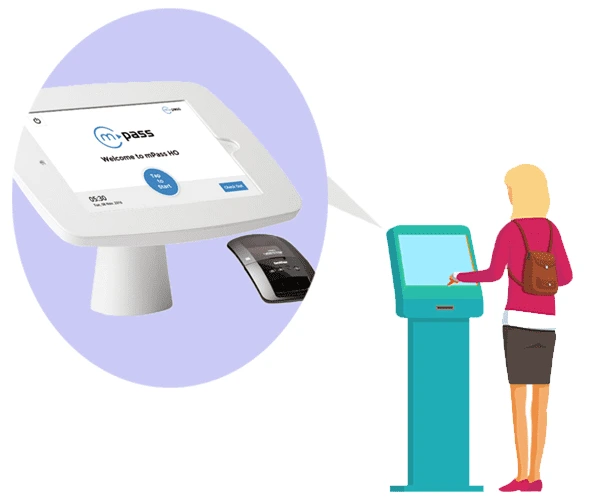Streamlining Patient Flow and Enhancing the Healthcare Experience
When visiting a hospital or healthcare facility, patients often face long queues, wait times, and delays. This can be frustrating and stressful, especially for those who are unwell or have appointments to keep. To address this issue, hospitals and clinics are turning to digital solutions like hospital queue management systems. These systems use technology to streamline patient flow, reduce wait times, and enhance the overall healthcare experience. One such system is mpass, a comprehensive queue management solution that is helping hospitals worldwide improve their operations and patient care.

Improved Patient Experience
A hospital queue management system like mpass can make a significant difference in the patient experience. By automating the queue management process, patients can receive real-time updates on their appointment status, wait times, and estimated service times. This reduces anxiety and uncertainty, allowing patients to plan their time more efficiently. Patients can also check-in remotely, either through a smartphone app or kiosk, which further reduces wait times and overcrowding in the waiting area. In addition, these systems provide patients with clear information on where to go and what to expect during their visit, enhancing their overall experience.
Efficient Operations
A queue management system also benefits hospital operations by streamlining patient flow and reducing wait times. With mpass, patients can book appointments online, reducing the need for phone calls and manual booking processes. This frees up staff time, allowing them to focus on patient care and other critical tasks. When patients arrive at the hospital, they can check-in quickly using self-service kiosks or mobile devices. The system can then assign patients to the appropriate medical staff, based on the type and urgency of their appointment. This reduces overcrowding in waiting areas and ensures that patients are seen by the right healthcare professional at the right time.
Real-Time Data and Analytics
A hospital queue management system like mpass provides valuable data and insights on patient flow and staff performance. The system can generate reports on wait times, service times, and patient satisfaction, which can help hospitals optimize their operations and identify areas for improvement. Real-time data on patient flow can also help hospitals allocate resources more efficiently, such as staffing and equipment, to improve service delivery. By analyzing patient data, hospitals can gain a deeper understanding of patient needs, preferences, and behavior, which can inform future healthcare strategies.
Improved Health Outcomes
A hospital queue management system like mpass can have a positive impact on patient health outcomes. By reducing wait times and improving patient flow, hospitals can ensure that patients receive timely care and treatment. This is particularly important in emergency situations, where delays can be life-threatening. The system can also improve patient engagement and adherence to treatment plans, by providing clear and timely information on appointments and procedures. In addition, a queue management system can reduce the risk of infection transmission by minimizing patient contact and reducing waiting times.
In conclusion, a hospital queue management system like mpass can transform the patient experience and enhance hospital operations. By reducing wait times, improving patient flow, and providing real-time data and insights, hospitals can optimize their service delivery and improve health outcomes. As healthcare continues to evolve and become more patient-centric, digital solutions like Hospital Queuing System will play an increasingly important role in enhancing the overall healthcare experience.
